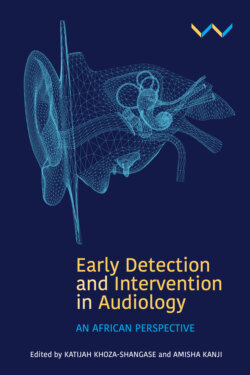Читать книгу Early Detection and Intervention in Audiology - Группа авторов - Страница 20
На сайте Литреса книга снята с продажи.
Early detection of hearing impairment in sub-Saharan Africa
ОглавлениеPublished literature from sub-Saharan Africa has inconsistently reported on the aforementioned principles. Some studies have focused on aetiologies and degree of childhood hearing impairment (Banda et al., 2018; Gopal, Hugo, & Louw, 2001; Wonkam et al., 2013), while others have focused on NHS programmes for early detection of hearing impairment and the feasibility of telehealth to extend these screening services to larger populations (Ameyaw, Ribera, & Anim-Sampong, 2019). The exploration of telehealth is particularly useful in contexts where road networks, distance from health care facilities and transport costs preclude attendance or follow-up, but this does not come without challenges, including ethical dilemmas. Naudé and Bornman explore the ethical considerations of tele-audiology for EHDI in chapter 13.
Studies specifically focused on early detection through NHS have been documented in Nigeria, Côte d’Ivoire, Malawi and South Africa (Akinola, Onakoya, Tongo, & Lasisi, 2014; Brough, 2017; De Kock, Swanepoel, & Hall, 2016; Okhakhu, Ibekwe, Sadoh, & Ogisi, 2010; Tanon-Anoh, Sanogo-Gone, & Kouassi, 2010). NHS has been piloted in hospital settings as well as immunisation clinics in Nigeria. Although immunisation clinics received support from government and the mean age for the initial hearing screening was 10.55 days, the lack of electrophysiological measures for the second-stage screening, high infant mortality from infectious diseases and a poor follow-up return rate were reported challenges when implementing NHS in Benin, Nigeria (Okhakhu et al., 2010). Similar challenges were reported in another study conducted in a hospital context in Nigeria (Akinola et al., 2014).
Immunisation clinics in both PHC settings and the neonatal intensive care units in a hospital setting were explored as contexts for NHS in Côte d’Ivoire. A coverage rate of 87.4 percent was reported, with diagnosis of hearing impairment by 22 weeks of age. Despite both these contexts serving as feasible platforms for NHS, investment in equipment, staffing and efficient data management systems for follow-up were reported as being essential (Tanon-Anoh et al., 2010). A pilot project in Malawi explored various contexts for NHS, such as private maternity units, community-based immunisation clinics and kangaroo or special care units in a hospital setting (Brough, 2017). Screening in a hospital setting was found to be unfeasible due to the lack of follow-up. In addition, there were only two audiology departments equipped for diagnostic assessments. Despite the possible feasibility of immunisation clinics, adequate services for diagnostic assessments need to be carefully considered in this country prior to the expansion of NHS services.
